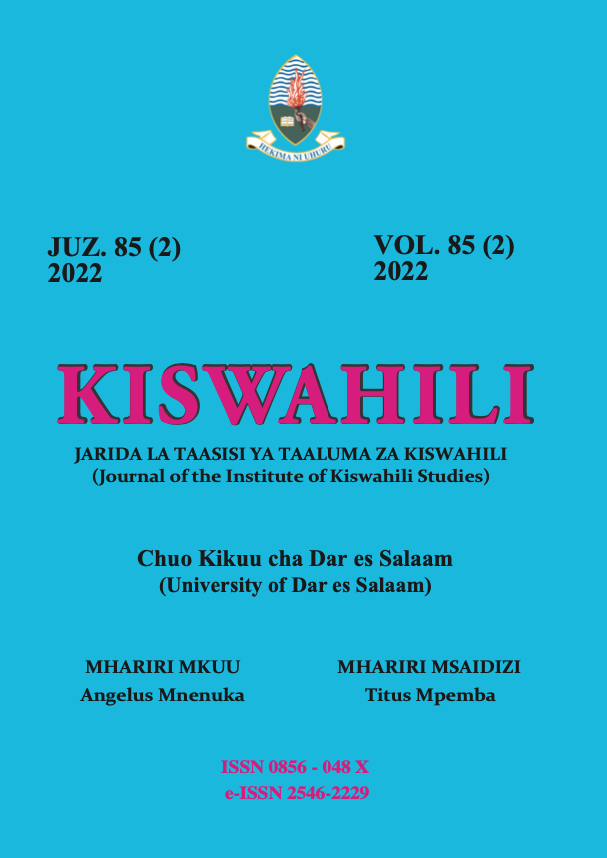Examining Language Accessibility in the Linguistic Landscape of Tanzania: The Case of Labels on Pre-packaged Foods and Beverages
Abstract
This study examined the language accessibility on labels of commercially produced pre-packaged foods and beverages in Tanzania, targeting local consumers, and its implication on information access. Being guided by Backhaus (2005) and Spolsky (2004) Sociolinguistic Framework, the study extends the scenery of research in the field of linguistic landscape (LL) that places the presumed reader(s) as key actors in analysing LL. The study analysed 129 photographic data (semiotic resources) from labels of pre-packaged foods and beverages collected randomly from six shopping locations in Dar es Salaam. It also interviewed 25 respondents. Findings revealed that two main languages, English and Kiswahili were observed on the studied pre-packaged food and beverage labels. However, it is English and not Kiswahili (the official and national language) which is mostly represented on labels of commercially produced pre-packaged foods and beverages in Tanzania. The majority of local consumers who are not proficient in the most preferred language on labels were reported to have difficulties in reading and understanding the information written on labels a situation that hinders their access to the information contained on labels.
Â

